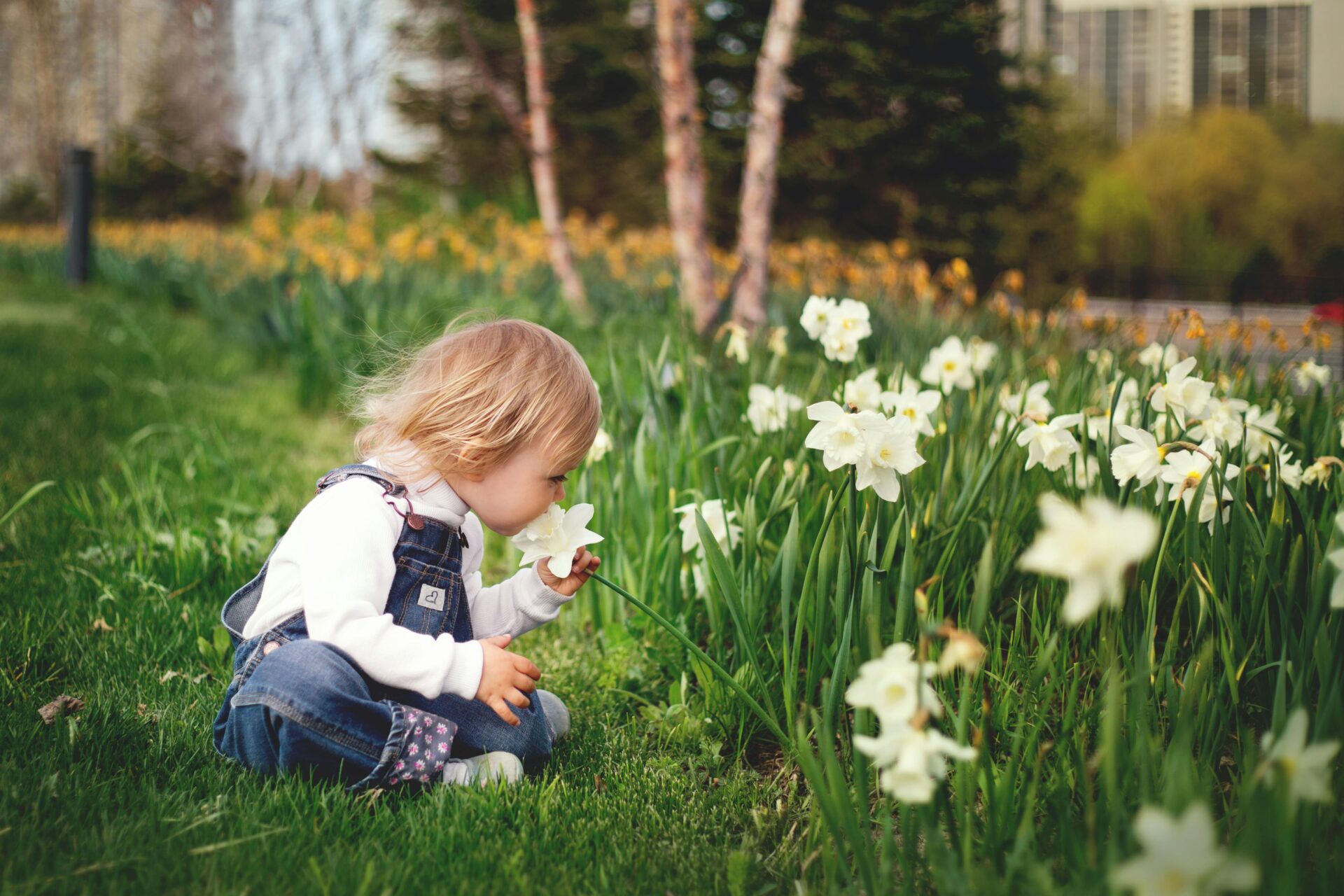
Spending time in nature is a valuable learning experience for young children. At Children’s Discovery Center, we understand the profound benefits of connecting children with the natural world.
After all, nature offers endless opportunities for discovery, growth and learning. When we integrate time in nature with the principles of our Reggio Emilia curriculum and STEAM learning, children experience a holistic approach to education that nurtures their curiosity, creativity and cognitive development.
The Power of Nature in Child Development
The smell of fresh rain, the crisp crunch of fall leaves, the lush feel of grass—time in nature allows children to explore the world around them with all their senses.
This rich sensory experience enhances STEAM learning by connecting discoveries in ways that a traditional classroom alone cannot provide. By inviting us to experience lessons in an all-new setting, nature fosters creativity, critical thinking and problem-solving skills, all of which are foundational for a child’s early education.
Children are naturally curious, and nature presents a safe space to ask questions, explore and experiment without fear of failure. Whether observing insects or watching clouds, the outdoors opens doors to new learning opportunities.
- Nature Teaches Observation Skills
There’s so much to see and explore in nature—every tree, rock and flower tells its own story. Through careful observation, children learn to appreciate the beauty in even the smallest details. This is a key part of a Reggio Emilia curriculum, which emphasizes the importance of children as active participants in their learning, using observation to drive their curiosity.
How to foster observation skills:
- Go on nature walks and encourage your child to notice things like the color of leaves, the sound of birds or the texture of tree bark. Ask them open-ended questions to prompt further thinking, such as, “What do you think lives in that tree?”
- Set up a simple outdoor observation station where your child can draw or write what they see, enhancing their ability to notice environmental changes.
- Nature Fosters Problem-Solving and Critical Thinking
The outdoors is full of challenges and puzzles that require critical thinking. Whether children are building a fort from sticks, balancing rocks or climbing a tree, they are practicing problem-solving skills crucial for STEAM learning.
In these moments, children learn how to approach problems, test hypotheses and think through solutions, much like young scientists. To explore the Scientific Method with your little Einstein, view this breakdown and experiments from the National Institute of Environmental Health Sciences.
How to foster problem-solving skills:
- Set up a nature scavenger hunt where your child needs to find certain objects (e.g., a feather, a pinecone, a smooth rock). This encourages problem-solving and critical thinking.
- Encourage children to experiment with building structures from natural materials, such as leaves, sticks or stones, to help them practice engineering concepts.
- Nature Encourages Curiosity and Creativity
Nature is an endless source of inspiration for creative minds. Whether your child is collecting acorns to create an art project (like this painted pinecone turkey) or using leaves to create a “stained glass” lantern, the outdoor world allows children to bring their imagination to life.
How to foster curiosity and creativity:
- Encourage imaginative play by asking your child to pretend they’re animals in the wild or explorers on a treasure hunt.
- Allow your child to pick a natural object (a rock, a leaf or a flower) and think of as many creative uses as possible, such as a prop in their story or part of a creative drawing.
- Nature Teaches Patience and Perseverance
Nature also offers important lessons in patience. The growth of plants, the changing of the seasons, and the slow-moving patterns of the sky and weather provide children with a deep sense of time and persistence. In nature, there is no rushing—things unfold in their own time, and children learn to observe these processes.
How to foster patience and perseverance:
- Encourage children to start a garden, observing how their plants grow and change. This teaches them about the process of growth and patience.
- Create simple nature-based challenges, such as building a rock tower or creating a nature collage.
- Nature Enhances Emotional Development
Spending time in nature helps children understand and express their emotions. The peacefulness of the outdoors provides a calming effect, and the freedom to explore encourages self-expression. Nature can also help children develop empathy as they begin to understand the interconnectedness of all living things.
How to foster emotional development:
- Allow your child to spend time outdoors where they feel comfortable and at ease. Notice how they interact with the environment and ask how it makes them feel.
- Encourage your child to take part in activities that promote mindfulness and emotional awareness, such as deep breathing exercises in a quiet outdoor setting.
Let’s explore together!
At Children’s Discovery Center, we are committed to providing children with rich, hands-on learning experiences that extend beyond the classroom and into the world around them. From infant care to our kindergarten Discover School, our early childhood educators are ready to help your family succeed. Contact us today to schedule a visit to one of our five Toledo-area childcare centers.
 419-867-8570
419-867-8570